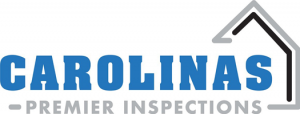Purchasing a home in North Carolina is a significant investment, and one of the most crucial steps in the home-buying process is the inspection. A thorough real estate inspection can reveal potential issues with the property, ensuring you make an informed decision. In this guide, we will explore the key aspects of real estate inspections for home buyers in North Carolina, helping you navigate this critical step with confidence.
Understanding the Importance of a Real Estate Inspection
A real estate inspection is a comprehensive assessment of a property’s condition. It provides invaluable insights into the home’s structural integrity, safety, and potential maintenance and repair needs. By undergoing an inspection, buyers can uncover hidden defects or issues that might not be apparent during a casual walkthrough, ultimately mitigating unforeseen costs and headaches down the road.
Selecting a Qualified Inspector
In North Carolina, real estate inspections are typically performed by licensed home inspectors. To ensure a thorough and reliable inspection, it’s crucial to choose a qualified professional. Look for inspectors who are licensed through the North Carolina Home Inspector Licensure Board (NCHILB) and have a strong reputation in the industry. You can also ask your real estate agent for recommendations, but be sure to do your own research as well.
Scope of Inspection
A standard real estate inspection in North Carolina typically covers the following areas:
- Structural Integrity: Inspectors will assess the foundation, walls, roof, and overall structural stability of the home.
- Mechanical Systems: This includes an examination of HVAC systems, plumbing, electrical systems, and any built-in appliances.
- Exterior: The exterior inspection covers siding, windows, doors, and the condition of the property’s drainage system.
- Interior: Inspectors will assess the condition of floors, walls, ceilings, and check for signs of water damage or mold.
- Roof and Attic: This part of the inspection involves a close examination of the roof’s condition and attic spaces.
- Plumbing and Electrical: Inspectors will check for leaks, faulty wiring, and other potential hazards.
- Heating, Ventilation, and Air Conditioning (HVAC): This inspection evaluates the functionality and condition of your HVAC system.
The Inspection Report
Following the inspection, the inspector will provide you with a detailed report summarizing their findings. This report is a crucial document in the home-buying process. It typically includes:
- Descriptions of any issues found during the inspection.
- Recommendations for further evaluation or repairs.
- High-priority safety concerns.
- Photos documenting areas of concern.
Using the Inspection Report
Upon receiving the inspection report, it’s essential to carefully review it with your real estate agent and possibly a qualified contractor. This report will help you make an informed decision regarding the purchase of the property. You may choose to negotiate with the seller for repairs or adjustments to the sale price, depending on the findings.
Conclusion
In the home-buying process, a real estate inspection is an indispensable step to ensure that you are making a sound investment. By selecting a qualified inspector, understanding the scope of the inspection, and using the inspection report wisely, you can make an informed decision and proceed with confidence. In North Carolina, the expertise and attention to detail of a professional inspector are your allies in protecting your investment and ensuring the safety and comfort of your future home.


 Facebook
Facebook
 X
X
 Pinterest
Pinterest
 Copy Link
Copy Link



